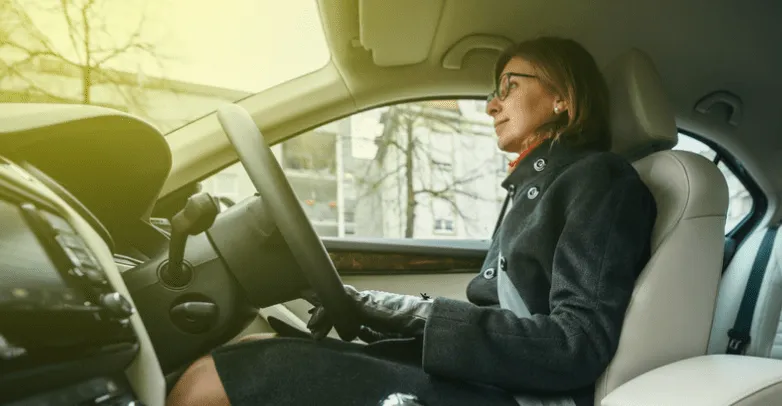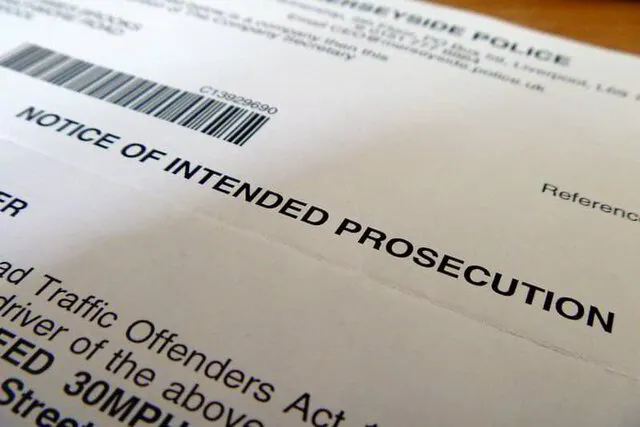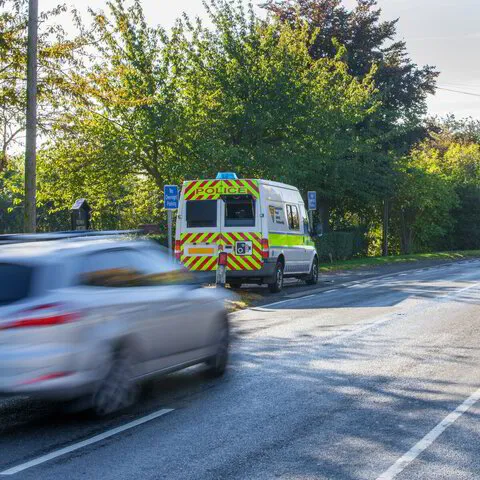Totting Up Ban: How To Win With Successful Arguments
Are you facing a totting up ban? Have you received a court summons? The best thing you can do is seek legal advice as soon as possible. In this article, I will answer the most common questions about totting up, and the possible arguments that can either reduce your penalty or avoid getting banned.
Content Overview
What is a totting up ban?
A "totting up" ban is a penalty that results in the disqualification of a driver who accumulates 12 or more penalty points on their license within a period of 3 years.
The 12 points are calculated by going back 3 years from the date of the current driving offence to the dates of earlier offences. The date on which you were convicted or, sentenced for earlier driving offences is not relevant.
Once you have completed your 2-year period as a probationary driver, you are no longer at risk of having your licence revoked if you reach 6 or more points. However, if you reach 12 or more points in a 3-year period, you are at risk of a 6-month driving ban under what is known as the “totting up procedure”
Exceptional hardship as an argument to reduce or avoid a driving ban
There is no definition for exceptional hardship. But the word “exceptional” is there for a reason. Anyone banned from driving will suffer inconvenience, often on a considerable scale covering:
- commuting to work;
- going to see family members;
- taking the children to & from school or to outside activities
These are not reasons sufficiently important for you to avoid being banned from driving. The hardship has to go above & beyond inconvenience & be “exceptional.”
There is case law to the effect that it can be sufficient if you are the only person who will suffer exceptional hardship if you are banned for 6 months. However, many Magistrates take the view that others need to be affected for your argument to succeed. This could be:
- your partner
- your children
- your employees
- your extended family who are in some way dependent on you
Third parties must be more than inconvenienced. A normally strong case (but not always one that succeeds) is where you will lose your job if you are banned from driving for 6 months and
- your employer cannot offer you a non-driving role
- your employer will not keep your job open for you
- you will struggle to find alternative employment
- the loss of your income puts at risk the ability to keep paying rent, your mortgage & all other household commitments
- you and your family are at risk of losing their home
Another normally strong argument is where your role in a business is fundamental to the success of the business possibly because you are responsible for
- extensive travel to win new contracts
- ongoing visits to clients often at short notice
- multiple appointments across a wide geographical area each day
and where:
- no-one is available to be your driver for the duration of the ban
- your business cannot afford to employ or hire one or more drivers
- public transport & taxis are neither practical nor economically viable
All these issues should ideally be supported by documentary evidence which is where a specialist Driving Offence Solicitor can really show his worth.
Examples of successful exceptional hardship arguments
- the Defendant spent considerable time supporting his mother & mother-in-law who would suffer if he was unable to drive: this would have to be supported by compelling evidence especially, if it was the only argument;
- the Defendant was diagnosed with PTSD 6 years previously & the loss of his licence would affect his family members, see him have a relapse & mean he would have to consult a debt management company;
- the Defendant was a single parent & the loss her of licence would detrimentally affect her income with a financial impact on herself, her child & affect her mental health;
- exceptional hardship would be caused to the Defendant’s wife & daughter who would lose their home if he was disqualified as he would lose his employment & was the main income provider;
- the Defendant would lose his employment with an impact on his immediate family; his mother in ill health and he needed to drive to take her regularly to hospital and care for her;
- there would be a significant impact on the Defendant, his family, his business & his employees as he needed a vehicle to carry equipment to run his business
How long does a totting up ban stay on your licence?
The simple answer is normally 6 months. Magistrates do have the power to impose a longer driving disqualification although they rarely do so. They may consider doing so if they reject any exceptional hardship argument you put forward and:
- you are reaching more than 12 points;
- you have a bad record;
- There are road safety issues arising from your convictions;
It takes immediate effect so, if you are ever at risk of being banned from driving you should not drive to Court as you will not be able to drive as soon as the ban is announced by the Magistrates. Use public transport, get a lift from someone, or, get a taxi – better to err on the side of caution than risk having your car stranded outside a court that could be a long way from where you live!
When does the ban start?
As soon as the Magistrates announce that you are banned so once they tell you that you cannot drive from then on until you have received your licence back. Accordingly, you should not risk driving to Court.
How long does a totting up ban stay on your licence?
A 'totting up' ban remains visible on the DVLA website for 4 years. It counts for 3 years from when it is imposed. This has important implications for you:
- if you succeeded with an exceptional hardship argument so as to avoid a ban, you cannot rely on the same reasons for the next 3 years;
- if you tot again within 3 years the minimum driving disqualification you will then get is 12 months
What happens after a totting up ban?
From the day the ban is imposed, your driving privileges are revoked. Throughout the entire period of the ban, you are prohibited from operating any motor vehicle.
Can I reduce a driving ban?
You can do so by appealing to the Crown Court within 21 days of the date on which the ban was imposed. If you were banned under the totting up procedure because your exceptional hardship argument was rejected by the Magistrates you will have to argue that either:
- your argument should have been accepted so that you received no ban at all; or
- your argument would have been accepted & a shorter ban imposed
You should also apply to have the driving ban suspended pending the outcome of the Appeal. Although it seems obvious that this should happen, Magistrates have discretion as to whether to grant such an Application even though it may take a few months for your appeal to be heard.
If you succeed with this Application, you cannot resume driving until the lifting of the ban is recorded on the DVLA website – this may take up to 5 days from the application being dealt with.
What if points are due to expire by the time my case comes to Court?
That will not help you. The 3-year period for calculating whether previous points count for totting up purposes commences with the date on which the most recent motoring offence was committed. It is irrelevant how many points you have on the day your case is dealt with.
Therefore, there is no point in trying to put the date when your case is going to be dealt with so far back that earlier points will by then have lapsed because they will already have crystallised when the last offence was committed.
Let us look at an example: the most recent road traffic offence was committed on March 1st 2020 & the points on your driving licence as shown on the DVLA website are as follows:
| Offence Date | Conviction Date | Offence Code | Points | Lapse Date |
|---|---|---|---|---|
| 15.02.2017 | 23.05.2017 | SP50 | 3 | 15.02.2017 |
| 09.04.2017 | 12.06.2017 | SP30 | 4 | 09.04.2020 |
| 10.01.2019 | 25.03.2019 | SP30 | 3 | 10.01.2022 |
| 08.11.2019 | 19.12.2019 | SP30 | 3 | 08.11.2022 |
Based on the above, you would have 10 points when the offence on March 1st 2020 was committed. As the minimum number of points you can get for any endorsable offence is 3, you will fall to be dealt with under the totting up procedure, irrespective of when the Hearing for the offence committed on March 1st is dealt with.
The offence committed on February 15th 2017 does not count even though it was dealt with on May 23rd 2017 which is within the relevant 3-year period.
The “lapse date” shown above is the date when the points cease to count for totting-up purposes. Points do stay on your DVLA record, however, for 4 years – longer for offences like drink driving or, drug driving.
Some of my penalty points expire before my Court appearance. Will I still face a totting up ban?
Yes. The Court will consider the number of points that you had at the time of the current offence. Even if some points expire before the Court hearing, they will be relevant if they were valid on the day the offence was committed.
My points were due to expire shortly after the most recent offence was committed. Will the Court take this into account?
In theory, no. However, if the appropriate exceptional hardship is advanced, most Courts will take note of the dates of the motoring offences when considering whether to exercise discretion. The Court needs to consider the complete history as well as the implications of banning you. Magistrates are free to exercise their discretion when considering all matters.
Do my points get removed after a totting up ban?
Yes. At the end of a ban imposed under the totting up procedure, all the penalty points you had previously, including those imposed for the most recent offence, will be wiped clean leaving you at zero points when you get your licence back.
What happens if I have 9 or more Points, but still get offered a Fixed Penalty Notice?
A Fixed Penalty Offer is conditional on your being eligible to accept it. It will be issued after you complied with a Notice of Intended Prosecution for the current offence. At that stage the staff who issue it are not aware of how many points are on your licence, The onus is on you to tell them that you are not able to accept the conditional offer or, you could simply ignore the offer because when the time limit for accepting it expires, the matter will be referred to a Court.
If you try to accept the offer it should be spotted when your acceptance is received that you do not qualify & your payment and licence will be returned to you. Sometimes, the fact that you are not eligible to accept the offer will not be realised & your licence is returned to you with you being then on 12 or more points. You should then be referred to a court for a totting up ban to be considered.
Can I resume driving as soon as my ban ends?
No. You must wait until you actually have your licence in your possession or, you could be at risk of prosecution!
Do I have to attend Court to avoid being banned?
Yes, you should attend as you will be required to give evidence in support of your exceptional hardship argument.
It is also well worth instructing a solicitor because the stakes are obviously high & magistrates are coming under increasing pressure to limit the occasions on which they accept such arguments. Your solicitor should specialise in cases such as this so that he can really enhance your prospects of success.
Most Courts expect you to give evidence covering virtually all key points. Solicitors can save valuable Court time by outlining:
- your background & family circumstances;
- your employment status or the nature of the business you run;
- your driving record;
- the background to the current offence;
and then call you to confirm that what has been said is true before taking you through the rest of your evidence concentrating on why a 6-month ban will be a disproportionate outcome.
Some Courts (Warrington is one) limit the time allowed for these cases & therefore expect the Solicitor to outline the entire argument & just call you to confirm that everything is correct.
Can I prove exceptional hardship & still get banned?
Yes, you can. Magistrates can accept that exceptional hardship will result but impose a driving ban shorter than 6 months. This does not happen often. If it happens to you your points will still be wiped clean at the end of the driving ban.
Example 1: Defendant Banned for 14 Days
The Defendant was a former international footballer. He had previously been made bankrupt when various businesses he invested in all failed. He had applied to become the Manager of a lower league club & would need to have a valid driving licence by June 1st which was when the job was due to start.
He appeared before a District Judge at Sheffield Magistrates Court. The offence being dealt with that day would see him reach 15 points, 3 more than the threshold figure of 12 for a totting up ban.
The District Judge accepted that he would suffer exceptional hardship if he was banned & lost the chance of getting the job he had applied for. However, she took a dim view of him reaching 15 points so banned him for 14 days – the ban expired on May 30th leaving him free to take on the job if he was the chosen applicant.
Example 2: Defendant Banned for 3 months
The Defendant & his business partner ran a business delivering team-building programmes to schools. In the summer they concentrated on corporate events. He had reached 12 points and was therefore at risk of a 6-month driving ban. He went to school on his own driving a van packed with equipment. The business could not afford to pay for him to have a driver.
His case was listed at Warrington Magistrates Court the week the Government imposed a lockdown including the closure of schools as a response to the Covid-19 pandemic. His strong exceptional hardship argument was based on:
- the damage to the business if he could not drive;
- the loss of jobs for employees of the business;
- the financial impact on his wife & children
The lockdown & school closures, however, meant that essentially his business could not trade for the foreseeable future & he faced the real risk of his argument being rejected out of hand & him being banned for 6 months.
The Magistrates accepted that as soon as business opportunities presented he needed to be able to drive and so accepted his argument but banned him for 3 months – during this period it was not envisaged that he would, in any event, be able to run his business. His licence will be clean at the end of his ban.
Final Thoughts
Call me at 0151 601 3743 to get your free initial consultation. Let us discuss possible arguments to reduce your penalty, or win against a totting up ban.
Related Articles



